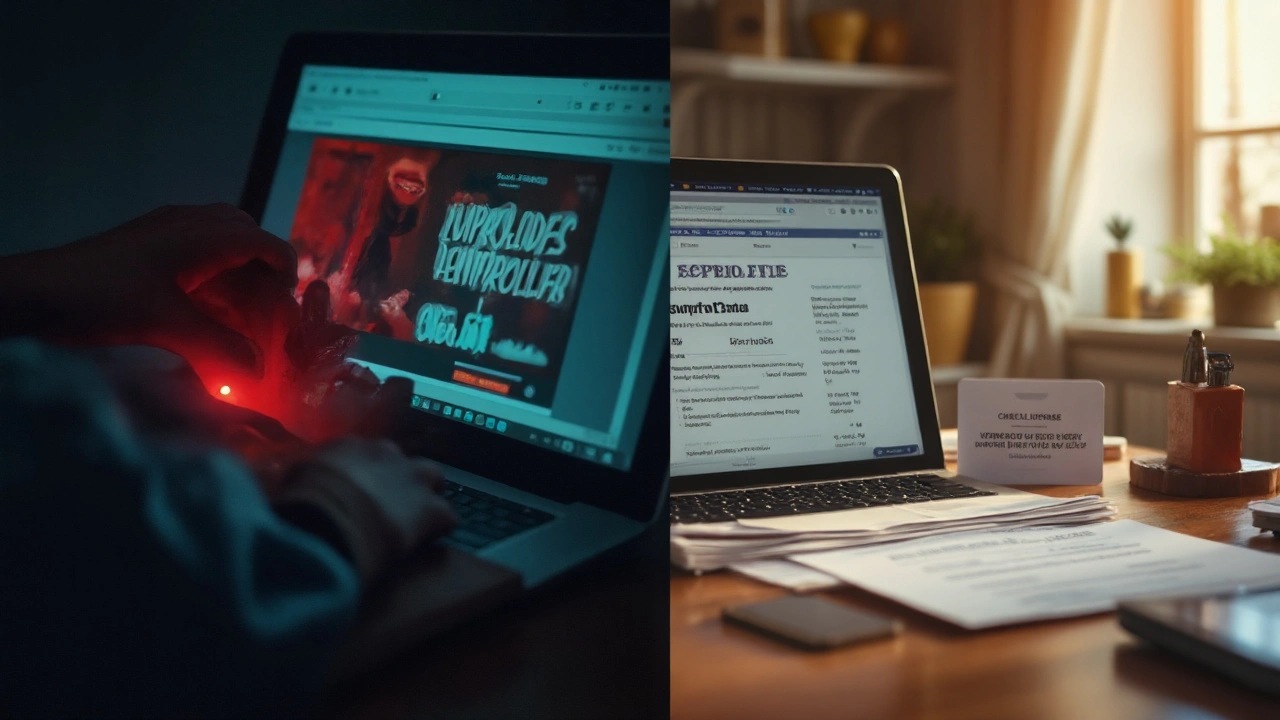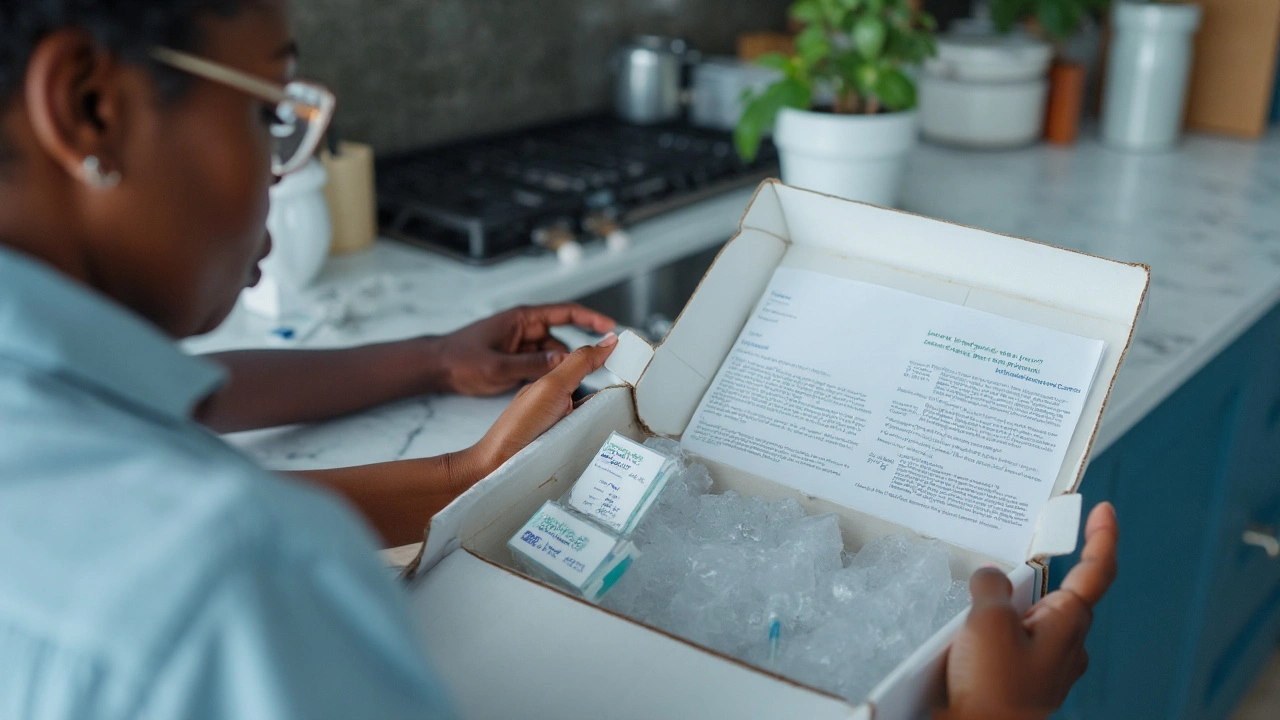You want the fastest, safest way to get leuprolide without wasting money or risking a bad shipment. Here’s the deal: this is a prescription-only drug, many doses are clinic-administered, and most orders run through a specialty pharmacy rather than a generic online shop. I’ll show you where it’s legitimately sold online, how pricing and insurance actually work, how to keep the cold chain intact, and what to do if something goes sideways.
If your goal is to buy leuprolide online, you probably want to get five jobs done at once:
- Confirm whether your exact formulation can be shipped to you or must go to a clinic.
- Find licensed, verified online pharmacies that handle specialty oncology/gynecology urology meds.
- Understand pricing, prior authorization, and financial help so you’re not overpaying.
- Make sure shipping and storage keep the drug potent (no temperature mistakes).
- Avoid counterfeits and protect your health data and money.
What to know before you buy: formulations, who can receive shipments, and how dosing works
Leuprolide (leuprolide acetate) is a GnRH agonist used for advanced prostate cancer, endometriosis, uterine fibroids, and central precocious puberty (CPP). Common brands you’ll see online: Lupron Depot, Eligard, Fensolvi, and Camcevi. All are prescription-only. Labels and indications are defined by national regulators (for example, FDA labeling in the U.S., EMA product information in the EU, MHRA in the UK, Health Canada, and the TGA in Australia).
Not all versions are handled the same way. Some are single-use depot kits mixed right before injection; others are prefilled syringes. Most are meant to be injected by a healthcare professional, and many insurers require “buy-and-bill” or clinic administration. That’s why even when you order online, the pharmacy often ships to a clinic-not your home.
Quick orientation by brand/form:
- Lupron Depot (IM injection): Monthly, 3‑month, or 6‑month depot kits. Often stored at controlled room temperature before mixing. Clinic administration is common.
- Eligard (SC injection): 1‑, 3‑, 4.5‑, or 6‑month depot kits. Typically kept refrigerated and shipped cold. Usually administered in clinic.
- Fensolvi (SC, 6‑month formulation for pediatric CPP): Cold chain matters. Usually shipped to a clinic or specialty pediatric endocrine center.
- Camcevi (SC, 6‑month): Prefilled system; cold chain handling. Often clinic-administered.
Two things determine where it can ship: what the product label permits (self-inject vs HCP-only) and what your insurer will cover (home delivery vs clinic). Even if self-injection is allowed, your prescriber and plan may still prefer clinic admin so dosing is precise and documentation is clean.
Storage and shipping matter. Depot suspensions can be sensitive. For cold-chain items, expect gel packs or phase-change packs, insulation, and overnight delivery. Temperature excursions (too warm or too cold) can reduce potency. Keep the shipper closed until you’re ready to check the packing slip and temperature indicators.
Regulatory basics you should know:
- Prescription-only: Legit pharmacies ask for and verify a valid prescription.
- Cross-border buying: Importing prescription drugs from another country may break your local laws or your insurer’s rules. Stick with licensed pharmacies in your country unless your doctor and regulator-approved programs say otherwise.
- Pharmacy accreditation: In the U.S., look for NABP Digital Pharmacy accreditation or a .pharmacy domain and independent verification (LegitScript). In the UK, check the GPhC register. In Canada, verify provincial pharmacy licenses. In the EU, check national regulator registers and the recognized online pharmacy identifier used in your country.
Medical safety first. This drug changes hormone levels. The first few weeks can trigger a “flare” of symptoms in prostate cancer, which is why doctors often co-prescribe an antiandrogen at initiation. You also need monitoring for bone density, blood glucose, and cardiovascular risk, depending on your profile. These are standard warnings from official product labeling used by regulators like the FDA and EMA.

Where to buy leuprolide online safely in 2025: verified channels, pricing, and insurance steps
The safest route is a licensed, accredited specialty pharmacy. Most major health plans contract with specific specialty pharmacies that can process prior authorizations, handle cold-chain logistics, and ship to your clinic or home as allowed. This is a different experience than buying a standard tablet from a general online retailer.
Use this simple path:
- Talk to your prescriber about the exact product, dose, and administration plan. Confirm if it’s clinic-administered only.
- Ask which specialty pharmacy your insurance prefers. If you’re cash-pay, ask for their recommendation among licensed options.
- Have the prescription sent electronically to the specialty pharmacy. Don’t upload PDFs on random websites.
- Complete benefits check and prior authorization. The pharmacy or your doctor’s office usually runs this. Expect questions about diagnosis codes and previous treatments.
- Get a final quote: copay, coinsurance, delivery fee, and any handling fees for cold-chain shipment.
- Schedule shipping. For clinic-administered doses, align delivery with your appointment date. For home delivery (if permitted), book overnight delivery early in the week to avoid weekend delays.
- On arrival, inspect packaging, temperature indicators, and expiration dates. If anything looks off, call the pharmacy before opening the drug kit.
How to verify a legitimate online pharmacy fast:
- U.S.: Check for NABP Digital Pharmacy accreditation or .pharmacy domain and cross-check with the NABP database. Many specialty pharmacies also carry LegitScript certification.
- UK: Confirm the pharmacy is on the General Pharmaceutical Council (GPhC) register and shows its registration number clearly.
- Canada: Verify the pharmacy’s provincial license (e.g., OCP in Ontario, CPBC in BC).
- EU: Use your national regulator’s registry to confirm the pharmacy is licensed for distance selling. Look for the recognized online pharmacy identifier used in your member state.
- Red flags: No prescription required, no pharmacist contact info, prices far below market, payment by crypto or wire only, or shipping from undisclosed locations.
What it costs in 2025 (typical U.S. cash ranges): prices vary by strength, supply duration, and contract pricing. Insurance often negotiates far lower rates, so treat cash ranges as ballparks. Always get a live quote from the dispensing pharmacy.
| Brand (Leuprolide) | Route & Interval | Storage & Shipping | Typical Administration | Approx. U.S. Cash Range (2025) |
|---|---|---|---|---|
| Lupron Depot | IM depot; 1-, 3-, or 6-month kits | Usually room temp before mixing; limited cold-chain needs | Clinic-administered common | $1,200-$2,800 per monthly kit; multi-month proportionally higher |
| Eligard | SC depot; 1-, 3-, 4.5-, 6-month kits | Refrigerated; ships cold, overnight | Clinic-administered common | $2,000-$3,800 per monthly strength; 6‑month can be $8,000-$13,000 |
| Fensolvi | SC depot; 6‑month (CPP) | Refrigerated; cold-chain required | Pediatric endocrine clinic | $5,000-$8,500 per 6‑month dose |
| Camcevi | SC depot; 6‑month | Refrigerated; cold-chain required | Clinic-administered common | $6,000-$10,000 per 6‑month dose |
Notes: These are rough cash prices gathered from typical specialty pharmacy quotes seen in 2024-2025 and may swing by several thousand dollars based on contracts, geography, and supply. Always confirm current pricing with your dispensing pharmacy. Outside the U.S., national health systems and provincial/territorial plans create a different pricing picture.
How insurance and authorizations usually play out:
- Commercial insurance: Prior authorization is almost always required. Your cost share may be a percentage (coinsurance). Manufacturer copay cards can help if your plan is commercial and eligible.
- Medicare: Part B may cover clinic-administered injections under buy-and-bill; Part D may cover certain supply routes. Copay assistance from manufacturers is restricted for federal programs; look to independent foundations if available.
- Medicaid: Coverage varies by state. Prior auth common. Patient assistance may be limited.
Financial help you can ask about:
- Manufacturer support hubs: Programs from AbbVie (Lupron Depot), Tolmar (Eligard, Fensolvi), and Accord BioPharma (Camcevi) often include benefits checks, copay assistance for eligible commercial patients, bridge supplies during authorization delays, and patient assistance programs (PAP) for uninsured patients who qualify.
- Independent foundations: Disease-focused charities sometimes provide grants for out-of-pocket costs. Your clinic social worker or specialty pharmacy can refer you.
Can you pay cash online without insurance? Yes, but know what you’re buying, confirm legitimacy, and budget for handling and shipping. For clinic-administered drugs, you may still need your clinic to receive and store the dose.

Risks, shipping, pitfalls to avoid, plus FAQ and next steps
Biggest risks and how to sidestep them:
- Counterfeit or mishandled product: Only use licensed pharmacies verified by your national regulator and recognized accreditation bodies. Avoid any seller that waives prescriptions or hides contact details.
- Temperature excursions: Choose overnight shipping, early-week delivery, and require a signature. If a temperature monitor shows an out-of-range event, call the pharmacy immediately for replacement guidance. Don’t inject compromised product.
- Wrong strength or formulation: Double-check the NDC, strength, and brand on the label against your prescription before your appointment.
- Authorization delays: Start prior auth as soon as your doctor decides on therapy. Ask the manufacturer hub about bridge programs if treatment timing matters.
- Clinic scheduling mismatch: Don’t ship to the clinic until your appointment is confirmed. Pharmacies can time this for you.
Cold-chain handling tips that actually help:
- Ask the pharmacy if a temperature indicator is included. If not, request it.
- Have someone present to sign; avoid porch delays. If allowed, ship to your clinic.
- Keep the insulated shipper closed until you’re ready to inspect. Check the packing slip, lot number, and expiration date first.
- Store as labeled right away. Don’t move between fridge and room temp repeatedly unless the label allows it (some kits specify limited room-temp windows).
Quick safety checklist before you pay:
- Verified pharmacy license (national registry) and, where applicable, NABP Digital Pharmacy or LegitScript.
- Valid prescription on file. No “online questionnaire only” shortcuts.
- Transparent pricing with delivery and handling fees disclosed.
- Clear return/replacement policy for temperature excursions and damage.
- Pharmacist consultation available by phone.
Alternatives and trade-offs: If supply is tight or your clinic prefers another option, your prescriber may suggest different depot intervals or a different brand of leuprolide. In prostate cancer, non-GnRH agonist options such as relugolix (an oral GnRH antagonist) exist, but that’s a separate drug with different logistics and costs. Your oncologist or urologist will weigh flare risk, adherence, and cardiovascular profile against convenience.
Region-specific notes you can act on:
- U.S.: Use specialty pharmacies your plan recognizes (common names include the big national specialty providers and integrated health-system specialty pharmacies). Confirm accreditation and ask for delivery windows that protect the cold chain. The FDA doesn’t “approve” pharmacies but regulates drugs; rely on state boards of pharmacy and NABP resources for pharmacy legitimacy.
- UK: Order through a GPhC-registered internet pharmacy. Many leuprorelin acetate depots are clinic-supplied in the NHS; private patients should still use registered providers and align deliveries with clinics.
- Canada: Use provincially licensed pharmacies. Specialty pharmacies often coordinate directly with oncology or gynecology clinics for delivery and admin.
- EU: Use your national regulator’s online pharmacy register. Be cautious with cross-border shipments that might breach national dispensing rules.
Common pitfalls worth avoiding:
- Chasing the lowest sticker price on a gray-market site. If it looks too cheap, it probably is.
- Weekend deliveries in summer or heat waves. Missed deliveries ruin depot meds fast.
- Skipping the benefits check. Many patients pay far less after prior auth and manufacturer copay support.
- Assuming home self-injection is allowed. For many patients and products, clinic administration is the norm.
Mini‑FAQ
- Do I need a prescription to buy leuprolide online? Yes. Real pharmacies will verify it. No exceptions.
- Can I get it shipped to my home? Sometimes. Many formulations and insurance policies require clinic delivery and administration.
- Is refrigeration always required? Not always. Some Lupron Depot kits are stored at room temperature before mixing, while Eligard, Fensolvi, and Camcevi generally require refrigeration. Follow the specific label.
- What if the package arrived warm? Don’t use it. Call the pharmacy. They’ll review the temperature indicator and arrange a replacement if it’s compromised.
- How do I lower my out-of-pocket cost? Use your plan’s specialty pharmacy, complete prior auth early, and ask the manufacturer hub about copay cards (commercial plans) or patient assistance (for those who qualify).
- Can I import it from abroad to save money? That can violate local laws and may void coverage. Stick with licensed in‑country pharmacies unless your doctor and regulator-approved programs say otherwise.
- Who says all this? Product labeling from regulators (FDA/EMA/MHRA/Health Canada/TGA) and standard specialty pharmacy practices for cold‑chain meds.
Next steps / Troubleshooting
- If you have insurance: Call the number on your card and ask which specialty pharmacy handles leuprolide for your plan. Tell your prescriber where to e‑send the prescription. Ask for a benefits check and an estimated copay before shipping.
- If you’re paying cash: Ask your prescriber to refer you to a licensed specialty pharmacy that accepts cash and will ship to your clinic. Request an all‑in quote (drug + handling + overnight cold shipping). Ask the manufacturer hub about PAP eligibility.
- If your authorization is delayed: Ask your clinic if the manufacturer offers a bridge program. Provide any documentation the plan wants (diagnosis code, prior therapies) right away to prevent back‑and‑forth.
- If your package is late or warm: Do not inject. Call the pharmacy immediately. Most will replace temperature‑excursion product after a quick review.
- If supply is out at your pharmacy: Ask about equivalent depot intervals or switching brands temporarily with your prescriber’s sign‑off. Keep the same active ingredient unless your doctor recommends a change.
- If you’re outside the U.S.: Use your national regulator’s online pharmacy register, and coordinate delivery with your clinic to avoid temperature mishaps.
Buying leuprolide online without headaches boils down to three moves: use a licensed specialty pharmacy, respect the logistics (cold chain and timing), and line up your coverage and financial support before anyone ships a box. Do those, and the rest gets surprisingly simple.


Bart Capoen
August 26, 2025 AT 11:31Also-always check the NDC code against your script. Once I got the wrong strength. Lucky I caught it before the appointment.
Jen Taylor
August 26, 2025 AT 22:50Shilah Lala
August 27, 2025 AT 05:21Linda Patterson
August 27, 2025 AT 12:52luna dream
August 27, 2025 AT 14:00Sarah Schmidt
August 27, 2025 AT 17:20And yes, I’ve had temperature excursions. Twice. Both times, I called the pharmacy immediately. They replaced it. But I still didn’t use it. I just… sat there. With the box. And cried. Because I didn’t know if I could trust anything anymore.
Cecil Mays
August 28, 2025 AT 10:17And if you’re worried about the cost? The manufacturer programs are LEGIT. I know people who got 12 months free. You just gotta ASK. No shame. You’re fighting cancer. Not a game. 💙
Susan Karabin
August 28, 2025 AT 11:24They call it healthcare. But it’s a market. And we’re the product.
Still. I got mine. Cold chain intact. No flare. No drama. Just me. And my body. And the quiet miracle of being here. That’s enough for today.
Raj Modi
August 29, 2025 AT 11:23Furthermore, the cold chain integrity, as elucidated in WHO Guidelines on the Storage and Transport of Temperature-Sensitive Pharmaceutical Products (2023), mandates that all depot formulations must be maintained within a strict 2°C to 8°C range throughout transit, with real-time data logging and third-party verification. Any deviation, even by 1.5°C for more than 12 hours, renders the product biologically inactive and potentially immunogenic.
Therefore, I urge all patients to consult their treating oncologist, utilize only GPhC/NABP-accredited pharmacies, and avoid any entity that does not provide verifiable regulatory documentation, including batch-specific COA (Certificate of Analysis) and temperature excursion reports. Your life is not a gamble.
Christy Tomerlin
August 30, 2025 AT 03:03